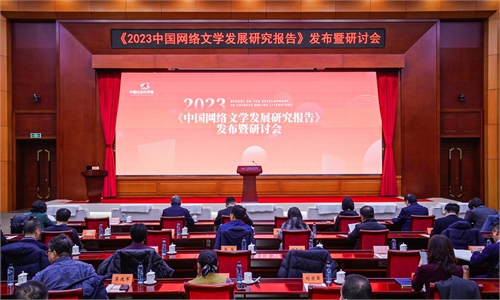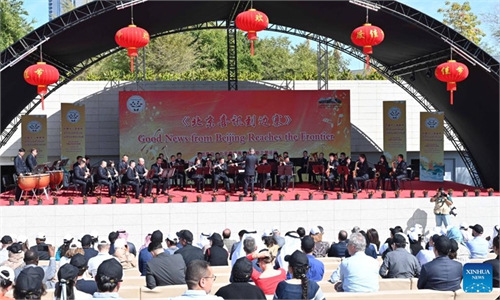ARTS / CULTURE & LEISURE
Fang Xiaoru Memorial carries forward traditional Chinese culture, patriotism
Passing down seeds of learning
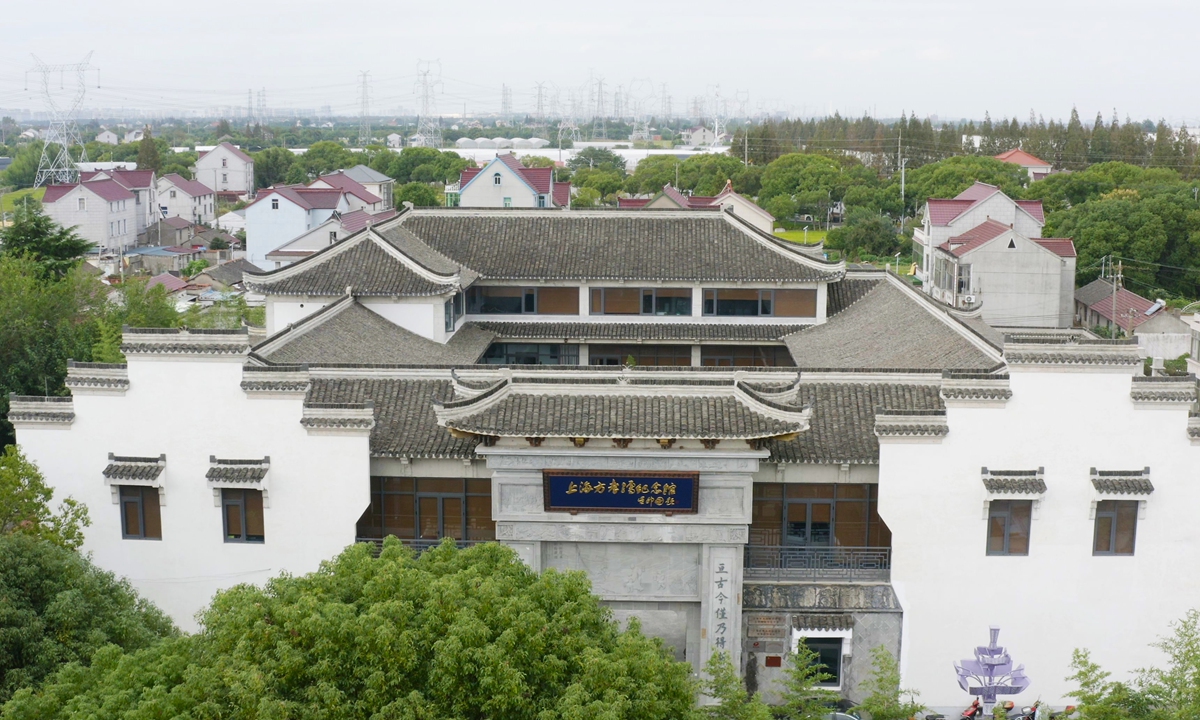
Fang Xiaoru Memorial in Shanghai. Photo: Courtesy of Fang Xiaoru Memorial
A memorial of Fang Xiaoru, a prestigious Confucianist scholar in the Ming Dynasty (1368-1644), located in the suburb of Shanghai, is gaining popularity among the public and scholars. Students in Shanghai are also increasingly visiting it to learn about Confucianism, patriotism, and other disciplines central to Chinese culture.
Praised as the "seed of learning" of his time, Fang Xiaoru (1357-1402) was an orthodox Confucian scholar-bureaucrat, first famous for his literary and political talents, and later for his loyalty to Emperor Jianwen. After Emperor Yongle usurped the throne in 1402, Fang refused to write an inaugural address justifying the usurpation and was subsequently executed along with reported 872 relatives, students, and peers. In China's history, he is the only person to be condemned to the "10 familial exterminations" instead of the traditional "nine familial exterminations."
Fang's wisdom has impacted Chinese people from generation to generation. Chinese President Xi Jinping, also general secretary of the Communist Party of China (CPC) Central Committee, cited an adage written by Fang at the CPC and World Political Parties Summit in July 2021: "Those who only seek comfort for themselves will ultimately be rejected and those who sacrifice their own interests for the success of others will be supported," the Xinhua News Agency reported.
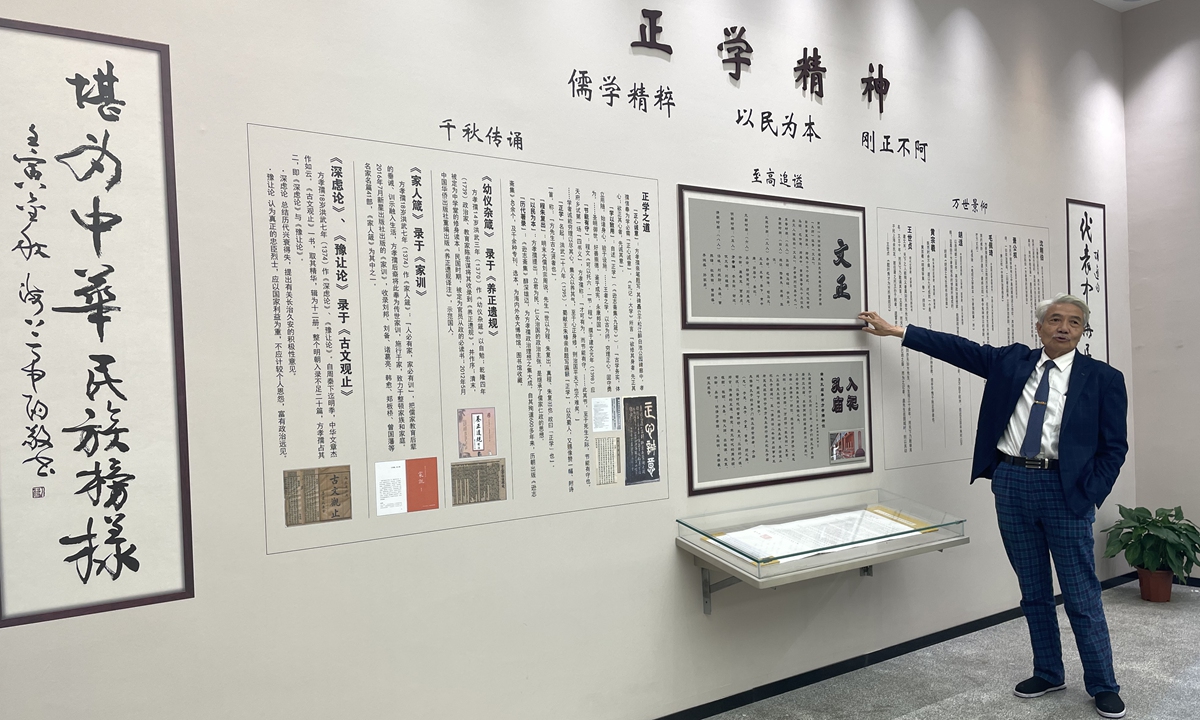
Fang Qingping gives an introduction to visitors at the Fang Xiaoru Memorial in Shanghai. Photo: Feng Yu/GT
Narrow-escape descendants
Located in Hangtou, Pudong New Area in Shanghai, the memorial was funded and established by Fang Qingping, the 25th-generation descendant of Fang Xiaoru. A long story and countless endeavor by historians and academicians, including Xu Guangqi, in the proceeding hundreds of years went into finding evidence and testifying that Fang Zhongxian, the younger son of Fang Xiaoru, was rescued by his brave and loyal friends. This explains why Fang Xiaoru still has descendants following the aforementioned annihilation. The nine-year-old boy struggled all the way from Fang Xiaoru's hometown in East China's Zhejiang Province to finally settle down in Shanghai's then Songjiang county, changing his family name and first name, as official archives and tomb inscriptions of celebrities revealed.
"In my childhood, my grandfather and father used to tell me stories of Fang Xiaoru and asked us, the offspring, not to forget the family root and his spirit, including uprightness and patriotism. When I was five or six years old, my father took me to Songjiang where Fang Zhongxian had spent the rest of his life after fleeing Zhejiang. We worshiped at the ancestral hall and academy the local government built to remember Fang Xiaoru," Fang Qingping told the Global Times.
Born in 1952 in Hangtou, Fang Qingping spent his life in Shanghai and made his fortune by running a paint company with his wife in the 1980s, which laid the economic foundation for the couple to build the memorial.
"My father told me to reorganize our family tree before he died in 2000, which I regard as my responsibility. It was in 2012 that I embarked on the journey to explore my roots. I followed the footsteps of Fang Xiaoru and went to his hometown in Ninghai in Zhejiang, to Jinan in Shandong where he studied and Nanjing in Jiangsu where he was executed, among other places he once lived or worked," Fang Qingping said.
"In 2018, after basically completing the research on the historical materials I had collected, I decided to build a memorial in Hangtou to remember Fang Xiaoru and record how his spirit and wisdom have been inherited and carried forward from generation to generation. I knew it would take a large amount of money, so we had a formal family meeting to discuss the issue. Thanks to the support from my wife and son, we decided to use the family savings, which we had planned to use to purchase a property along the Huangpu River," Fang Qingping told the Global Times.
He noted that with the help and support of the local government and warmhearted people from all walks of life, the 2,000-square-meter memorial was built and opened to public on March 16, 2020. The Fangs have invested more than 30 million yuan ($4.2 million) into the project so far.
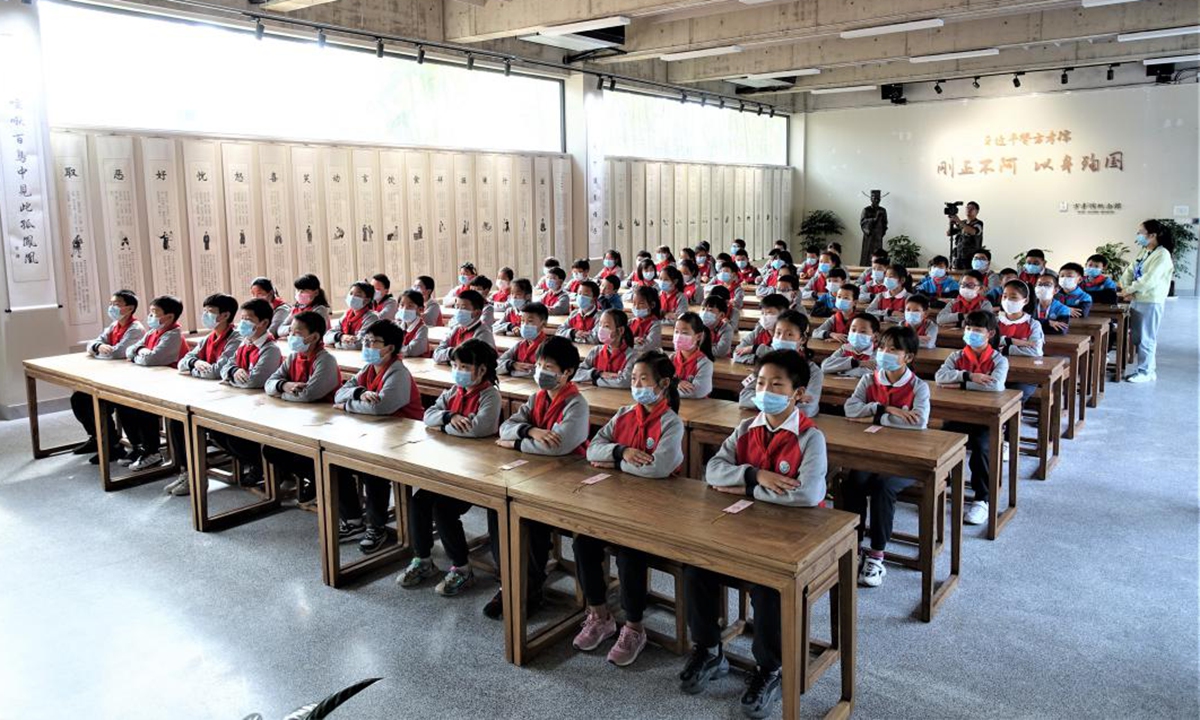
Students have a lesson at the memorial. Photo: Courtesy of Fang Xiaoru Memorial
Social value
The memorial aims to display the historical relics of Fang Xiaoru, inherit and study the connotation of his thoughts, and provide a platform for carrying forward Fang's spirit and studying his thoughts, which provides creative transformation and innovative development for China's excellent traditional culture.
Fang Qingping told the Global Times that the more he was engaged in Fang Xiaoru's achievements as a great scholar, educator, thinker, and politician, the more he felt that Fang Xiaoru's wisdom should be promoted and known to more people. "It's not a private issue for a single family, but a universal social welfare that should benefit the general public," he said.
With the integrating functions of exhibition, collection, education, and research, the memorial has greeted more than 20,000 students and thousands of other visitors, through the joint efforts of the Fangs and the local government.
As a responsible official, Fang Xiaoru was diligent and full of integrity, implementing benevolent governance, and advocated putting the people first, according to scholars. Fang Qingping told the media that he hoped more Chinese people would draw upon Fang Xiaoru's wisdom and strength, adding that he has also been promoting a section in the memorial to disseminate anti-corruption education.
Fang Qingping and his family members expressed they are proud that after so many years, Fang Xiaoru can still profoundly inspire and encourage more Chinese people despite their meager and humble efforts.

